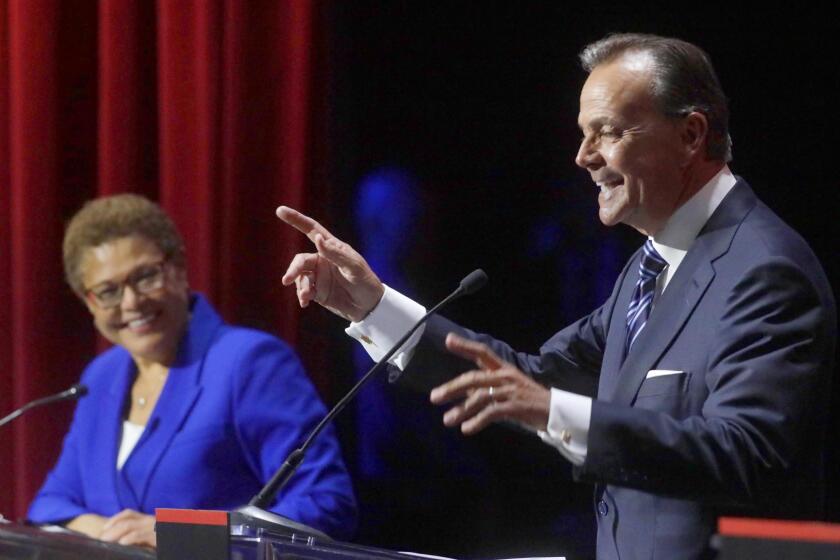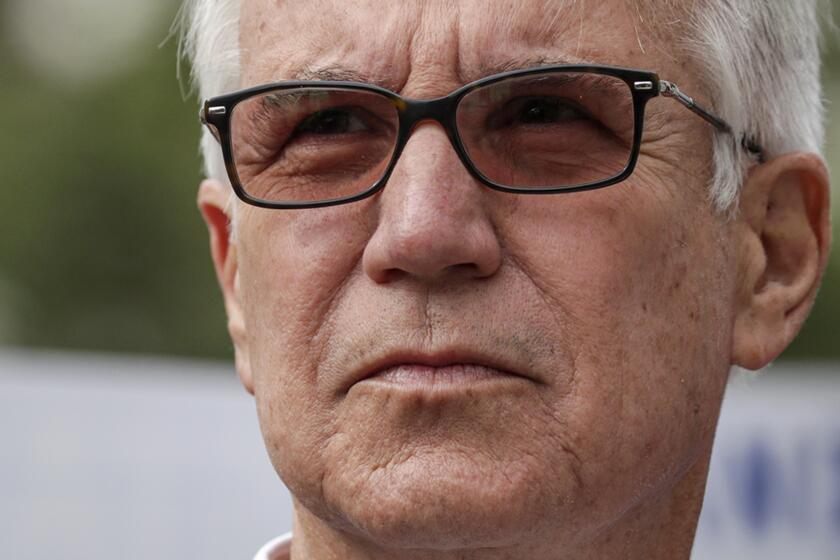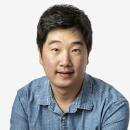Rick Caruso said no one feels safe in Los Angeles. Hereâs what residents say
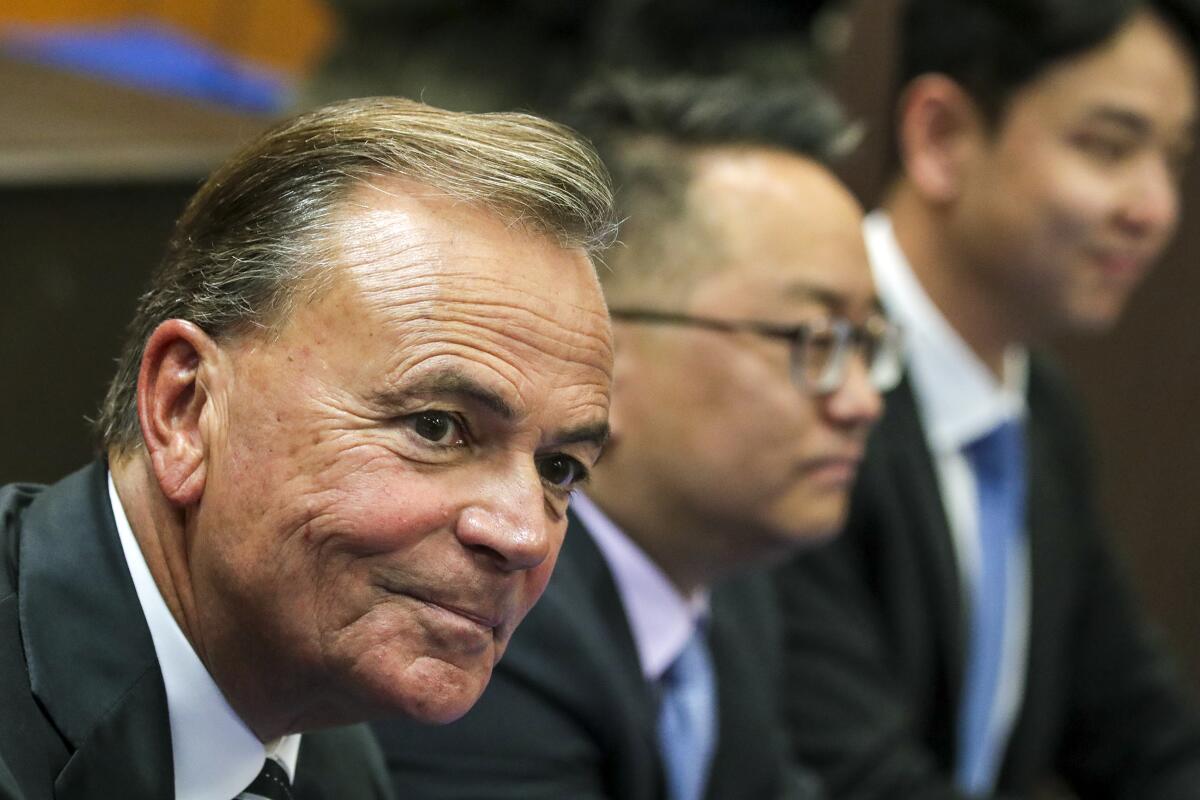
Standing on a debate stage for the first time last week, Rick Caruso said Los Angeles was experiencing some of the worst crime in the cityâs history.
The statement was not accurate. Not by a long shot.
But the sentiment Caruso is trying to convey â that the city is in dire straits, with a populace plagued by fear â is central to his insurgent campaign for mayor.
While nowhere near its 1990s peak, violent crime in the city has risen over the last two years. That upswing â along with a string of highly publicized tragedies, such as the killings of Jacqueline Avant, Tioni Theus and Brianna Kupfer â has left many Angelenos on edge.
During a debate where safety and perceptions of it took up substantial airtime, the candidates were asked if they felt safe in the neighborhoods they called home. Most said they did â though Caruso didnât specifically answer the question (his comments on safety came later in the night).
In the days that followed, Times reporters visited several neighborhoods across the city, including areas where the five debate participants live, to ask residents how safe they feel.
After interviews with dozens of Angelenos in San Pedro, Baldwin Hills, Brentwood, Beverly Grove and Eagle Rock (home to Councilman Joe Buscaino, Rep. Karen Bass, Caruso, City Atty. Mike Feuer and Councilmen Kevin de LeĂłn, respectively), as well as parts of South L.A. and the Valley, a nuanced picture emerged that ran counter to Carusoâs rhetoric.
During the debate, Caruso said everybody in the city âat every corner of the city, no matter where you live, what your background is, is scared to walk out their doorsâ â a sentiment that was not reflected in most of the interviews.
The increase in crime is real, as are peopleâs fears. But in the mayoral candidatesâ own neighborhoods â where many residents either were unaware of or knew very little about the June election â panic about safety is far from pervasive.
Caruso, a billionaire real estate developer known for carefully curated properties such as the Grove and Americana at Brand, has put public safety at the center of his campaign. He has called for the city to add 1,500 more cops and wants prosecutors to bring more cases against misdemeanor offenders.
In more affluent neighborhoods such as Brentwood and Beverly Grove, many residents said they feel safe walking on the streets and that they are thinking of other priorities such as controlling high gas prices and costs of living. In other parts of the city where no candidates live, more residents said they feel unsafe walking outside.
âBeing here at the park doesnât make me feel unsafe,â Priscilla Enriquez, 29, said as she handed her toddler a snack in a Pacoima park. âBut itâs just always a constant â âLike, OK, whatâs happening around me?ââ
Pushing her son on a swing set in the same North Valley park, Linda Frizzell, 39, suggested that it was a matter of geography.
âThereâs people that are safe. It just depends on the area youâre in,â she said.
Nearby break-ins and the frequent buzz of police helicopters have made the Panorama City neighborhood where the cosmetologist lives feel increasingly scary at night, she said. If Frizzell didnât own her townhome and housing werenât so expensive, sheâd like to move somewhere quieter, like Northridge.
In Studio City, Justin Williams, 42, said he doesnât feel personally unsafe and thinks a lot of the crime headlines are âprobably overblown.â But, he continued, âI think perception is probably more important than reality.â
Like other major cities around the country, Los Angeles has seen violent crime go up in recent years. The 397 fatal shootings in 2021 were more than any other year in the last decade â and 50% more than in 2020. Homicides and shootings, though, are down over the same period as last year, according to data from mid-March.
Many of the candidates talked about an uptick in crime during Tuesdayâs debate.
Also through mid-March, property crime was up more than 5% over last year. Vehicle thefts are up nearly 44% compared with the same point in 2020. Robberies are up nearly 18% over the same period as last year as well.
Still, these numbers pale compared with 1993, for example, when there were nearly 1,100 homicides inside the city limits.
Caruso said a week after the debate that comparing current crime levels to 1990s highs was a âridiculous basisâ to judge safety, which he characterized as âa very personal feeling.â
Itâs based on how âsomebody takes and assimilates information. It is through a whole bunch of sources. So youâre seeing things on the news. Youâre looking at reports. Youâre seeing the homeless. Depending on where you are, that may cause some fear, and you see some statistics,â he said. âYou can tell [people] itâs safer than 1990. Thatâs not going to make them feel better when they want their kids to go walk to school.â
He also recently spent time in Koreatown where he heard from residents who are worried about hate crimes, which have been well publicized and on the rise.
Fear-based appeals have âbeen used for tremendous success in different elections, both at the national level as well as at the local level,â said Ange-Marie Hancock Alfaro, chair of the USC political science and international relations department.
Hancock Alfaro said she thought public safety would likely remain one of the dominant issues in the race. Certain high-profile crimes, such as smash-and-grab robberies, are particularly alarming to people, regardless of whether their numbers have substantially increased, she said.
Another factor is that now âthere really is a shift of the pendulum in the aftermath of George Floyd,â Hancock Alfaro said.
In the immediate aftermath of Floydâs murder, political attitudes locally and nationally shifted sharply in the direction of police and criminal justice reform. Now, almost two years later, Hancock Alfaro sees public opinion locally and nationally âswinging a bit back to the center.â
On a sunny day last week, Freddy Roldan, 33, of San Pedro played with his 2-year-old daughter Selena in Point Fermin Park.
Roldan used to live in Compton, then downtown San Pedro, which had some safety issues but ânothingâ compared with his hometown. Still, he didnât feel safe taking his daughter to the park right next to his former home in downtown San Pedro, citing gang violence and homelessness.
He moved to another part of San Pedro where he can walk his daughter to the park easily.
Other residents in San Pedro â where Buscaino lives â said they felt generally at ease in the parts of town that are considered nicer, and less so in downtown San Pedro. Buscaino â who carved out a tough-on-crime lane before Caruso got into the race â has called for increasing the LAPD to 11,000 officers.
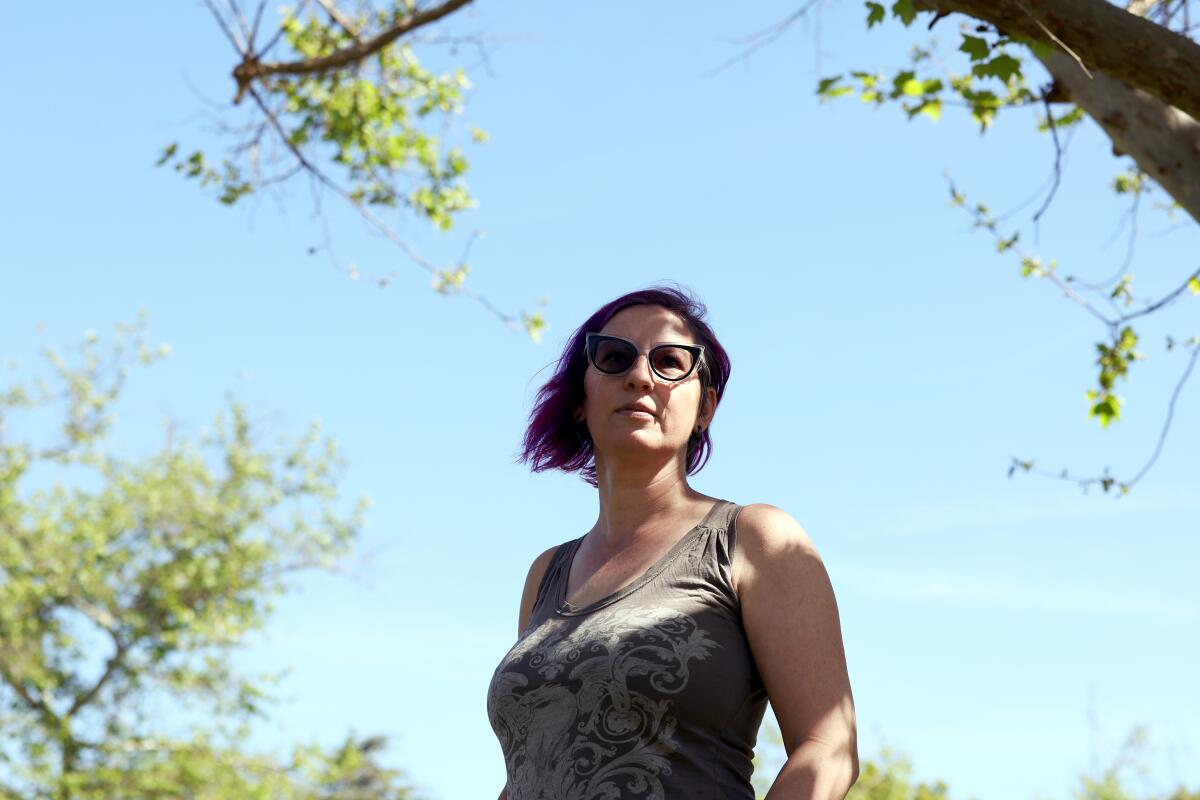
During a recent late morning at Pan Pacific Park, near the Beverly Grove neighborhood where City Atty. Mike Feuer lives, residents walked dogs and watched their children play. The former councilman has said that he wants to add about 500 more cops. During the debate he said he personally felt safe but noted that âpeople are on edge everywhere in the city.â
Eloise, a 43-year-old living in Picfair Village who asked that her last name not be used because of her work as a city librarian, said she heard of a dog walker who was fatally shot in her neighborhood last month.
Eloise regularly walks by the block where the shooting took place, but it hasnât changed her stance on public safety, she said.
âThe only change I have made is that Iâm not walking the dog alone at night at this point. I refuse to make it make me scared to go outside,â she said.
Things have gotten a âlittle worse,â she said, but crime rates remain âreally low.â Sites like NextDoor make problems look bigger than they are because individual incidents become so much more visible, she said.
Candidates âare just filling air,â said Terron Burgandy, a 35-year-old living in Pico-Robertson. âThe whole crime thing, for me, itâs just a normal politician move. Show me something different.â
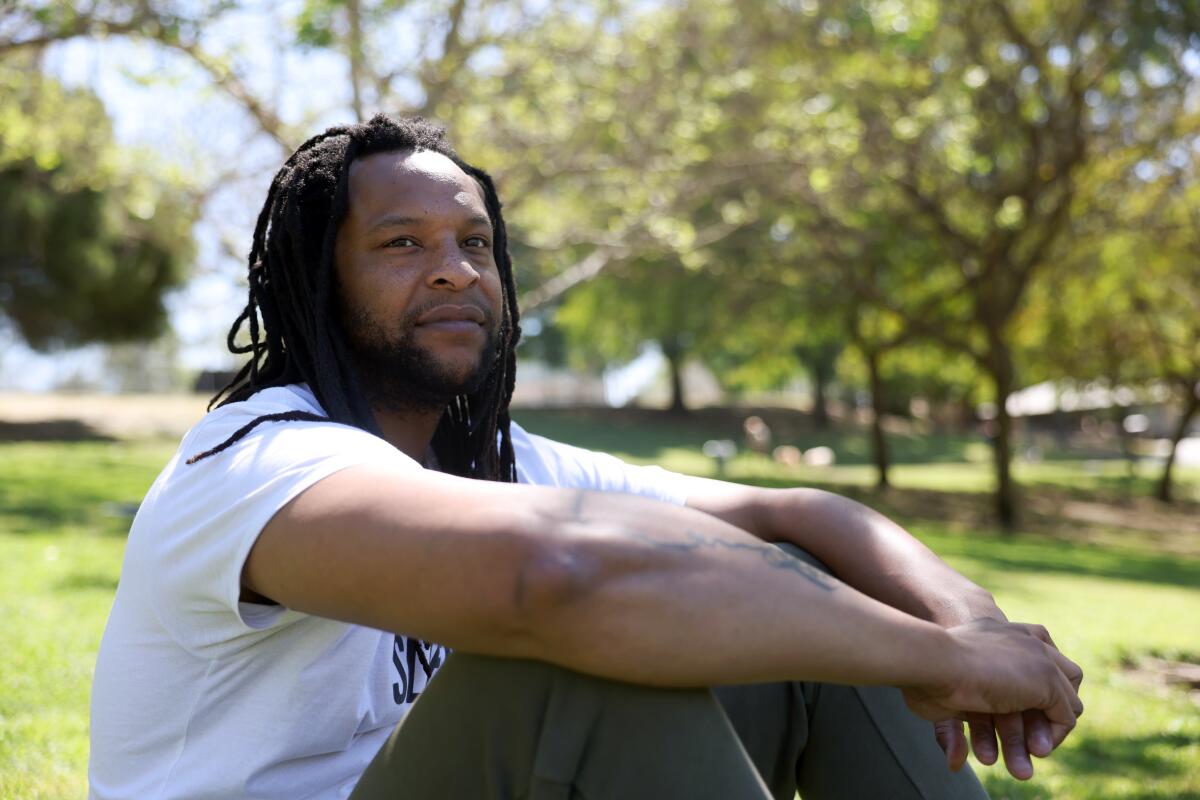
Sitting behind the counter of her motherâs flower shop in a Van Nuys strip mall, Diane Koch, 31, saw the situation as far more dire.
âWe had to hire security for Valentineâs Day because of the smash-and-grabs,â Koch said, noting that the robberies had made her scared to leave her home during the winter holiday season. âThatâs extra money out of our pockets to make sure that our employees were safe.â
Kochâs mother emerged from the back of the store and spoke to her daughter in Armenian.
âLet her know that sometimes we donât feel safe,â Koch translated, as her mother returned to the task of de-thorning a long-stem rose.
For their part, both Bass and De LeĂłn want the LAPD to return to its authorized force of 9,700 â a number itâs currently well below due to attrition.
During the debate, De LeĂłn said he felt safe but also characterized safety as ârelative to every Angeleno, depending on their ZIP Code and the color of their skin.â In Eagle Rock, where the councilman lives, residents also largely said they felt safe.
Reading a book by the Eagle Rock Recreation Center as she kept her eyes on her 11-year-old son playing basketball, Christina Ramaya, 47, said she had been vigilant of her surroundings since some neighborsâ cars were broken into a few months ago.
For her, however, she cares less about how mayoral candidates would address crimes than making sure they advocate for enough funding for schools and addressing inequities across Los Angeles.
âYou see itâs a beautiful place for kids to play,â she said as she gazed at the basketball court. âYou go to other areas, and thatâs not the case.â
On the edge of Baldwin Hills, where Bass lives, safety issues were more of a concern for some. During the debate, Bass said she felt completely safe, though she acknowledged that many in the city do not. She recently released a crime prevention plan that puts emphasis on addressing structural issues and increasing the economic and social vitality of communities.
âIt is all too common for some candidates to use fear and anger to motivate voters,â Bass said of Carusoâs rhetoric during the debate. âThis is a cynical approach that turns people against each other instead of bringing people together to solve problems.â
Ivan Boytez, 33, who lives near the border of Crenshaw and Baldwin Hills, said he brings his young niece to the Baldwin Hills Recreation Center, rather than his local park, because the park closer to his home was often full of people drinking and smoking cannabis.
âIâm just like, nah,â Boytez said. Still, he said he believed that violence was largely âbetween people who have beef, and as long as you stay away from all that, nobodyâs going to bother you.â
âThis is not downtown,â said Love Collins, 41, who works in Baldwin Hills. âBaldwin Hills, View Park-Windsor Hills, Leimert Park, these are generally safe communities because theyâre tight knit. I am cautious being a woman and a mom, but I feel comfortable being in L.A. in general.â
Proponents of a push to recall L.A. County Dist. Atty. George GascĂłn blame him for a dramatic rise in crime. But other factors also have played a role.
There are crime incidents here and there in his neighborhood, like car thefts, Boytez said. But he thinks most of the crime â including numerous small fires in and around encampments â is related to the homelessness crisis.
Candidates like Caruso and Buscaino have linked homelessness and crime, saying the growth of one leads to the growth of the other. More than a few residents echoed that sentiment, saying that large encampments in their neighborhoods contribute to their unease.
In Brentwood, residents and visitors alike said they believe public safety in one of the richest neighborhoods in the city is not much of an issue.
â90049 is a unique ZIP Code. Brentwood is really safe,â said Adam Bartash, 58, who lives in the Westside neighborhood.
The realities of life in Brentwood are a world away from those in parts of South Los Angeles, where residents said they didnât feel safe walking the streets and described crime as a daily occurrence.
Waiting to take her daughter to a COVID-19 test in Vermont Square Park, Kisha Taylor pointed toward the house where she said she was born and the house where she said she saw her first dead body at when she was 9.
Neighbors driving by slowed to wave hello to her as she spoke.
Next, Taylor pointed toward the spot in the park where her aunt Sandra was shot.
Since then, she hasnât let her kids go to her childhood park.
She hopes the next mayor invests in South L.A. â she wants more of her neighbors employed locally and more safe activities for her kids.
âWe have nothing for our children to do but come to the park,â she said. âIf they could open up swimming pools, things like that. Everything the upper class has, even if itâs on a smaller scale, thatâs what we would like to have happen.â
More to Read
Sign up for Essential California
The most important California stories and recommendations in your inbox every morning.
You may occasionally receive promotional content from the Los Angeles Times.
